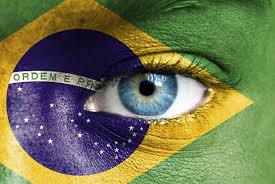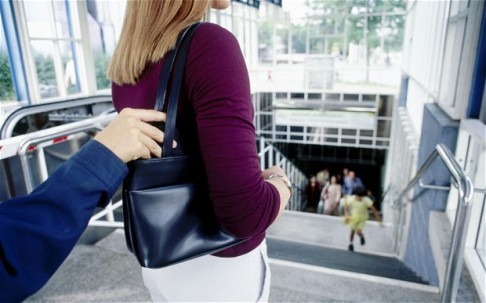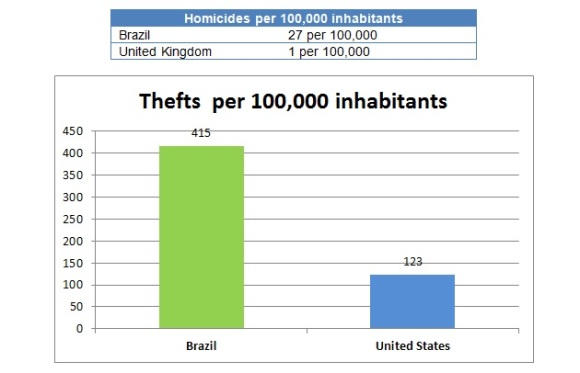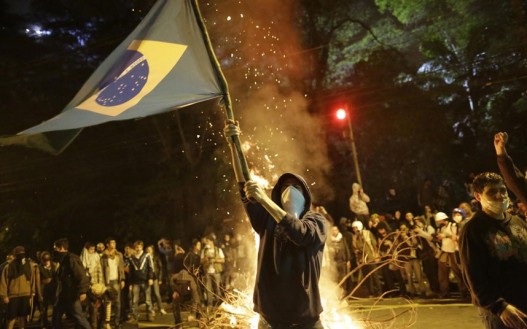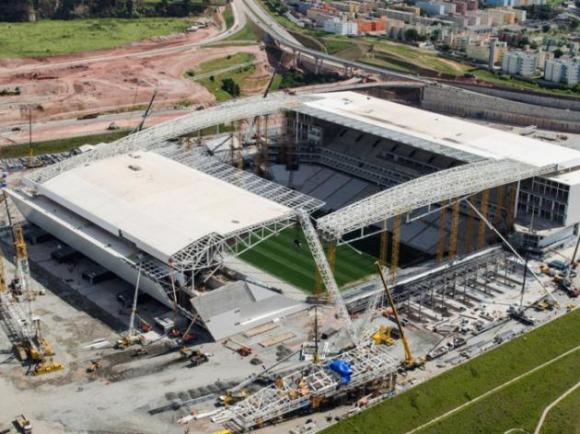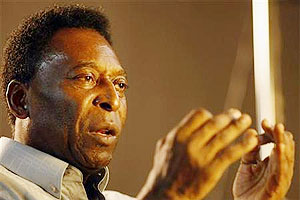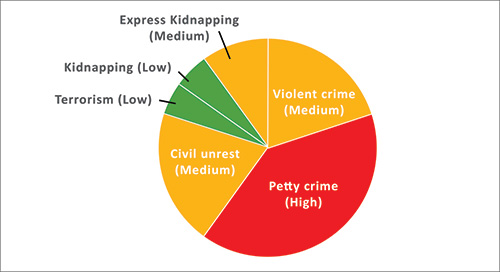How accurate is the negative international media coverage of the security risks for the FIFA World Cup?
The international media has increasingly focused on Brazil ahead of the upcoming FIFA World Cup, scheduled to take place in 12 host cities from 12 June to 13 July. Most press coverage has been negative, highlighting crime and unrest in the country. Indeed, there have been a number of issues in the country that have raised some doubts over whether the event will pass off seamlessly. Such concerns include recent protests and rioting in Rio de Janeiro and Sao Paulo, high crime rates in major cities, and delays in completing World Cup construction projects. Despite all of these issues, a factor that has been largely ignored is the role of media reporting on such international events. Although there are considerable social and economic problems in Brazil, the international media has tended to present security concerns in an unpragmatic discourse that is unhelpful for persons attending the World Cup.
The media’s catch-22
Whenever a country is assigned the responsibility of staging an international event, media attention on the host country is boosted. The media is responsive to its readers; when foreign interests in the country increase, whether it be a result of investment projects or the number of foreign nationals intending to visit a host country, the number of international stories on the country is likely to rise. The international media will generally seize the increased public attention to shed light on existing social, economic and/or political issues in the host country. However, there are several factors that limit the depth of coverage that journalists can provide on foreign countries. One of the obstacles to providing thorough analysis includes the imperative of providing succinct stories to match the generally superficial interest of a local audience reading about a foreign country. Moreover, the notion that ‘no news sells like bad news’ has gravity, particularly when the media is focusing on foreign countries. As a result, a number of news media agencies have provided diluted, neatly packaged summaries of ongoing issues in host countries that do not reflect realistic threats for foreign nationals in the country.
World “Crime” Cup?
Brazil has invested over US$855 million in security improvements and 57,000 troops, as well as 100,000 police, will be deployed for the tournament. In light of major security upgrades in the host cities, the crime risk will be somewhat mitigated. Nevertheless, it is important to note that Brazil’s cities have high crime rates by international standards. The following statistics illustrate the security gap in Brazil compared to developed countries.
While socio-economic and security problems in a host country may be credible, the international media has tended to overstate the security threats to foreign visitors, particularly when developing countries are scheduled to hold high-profile international events. Violent crimes are stressed in the news, hinting that foreigners are frequently victimised. However, in countries with high crime rates like South Africa and Brazil, locals residing in low-income districts generally face the greatest risk of being targeted in violent crime incidents. Thus, the major concern for visitors is petty crime in tourist areas and public transport hubs; opportunistic criminals may use the anonymity of large crowds for pickpocketing or bag-snatching.
Moreover, when considering the amount of resources that are typically invested in boosting security for internationally significant events, the risk of foreign nationals being victimised may be reduced. Indeed, when South Africa hosted the 2010 World Cup, reports of both violent and petty crime significantly declined. Reports indicate that crime dropped by over 11 percent during the month-long event. The reduction in crime was preceded by a swathe of negative media coverage on South Africa, suggesting that the tournament would be marked by violent crime (in fact, there was a spike in crime incidents only in the months following the event). Nevertheless Even if overall crime rates significantly decrease in Brazil for the tournament, crime will continue to be a concern in the country. However, contrary to be international media’s emphasis on violent forms of crime in Brazil, petty crime is a more pervasive concern for foreign nationals.
Civil unrest
Protests and strike action over government spending on the World Cup, among other grievances, have been increasing in the run-up to the tournament. National unity and ‘animacao’ (animation) over the World Cup are certainly not at an all-time high in the country. Indeed, local residents seem to be in competition with the international media over who is more critical of the upcoming games. Nevertheless, the most vocal critics who have called for disruptive protests during the tournament form a small minority; many Brazilians remain apathetic about the international event.
Numerous media sources have pointed to the unrest during the FIFA Confederations Cup (FCC) in Brazil in June 2013 as a gauge of what to expect during the World Cup. The FCC was marked by persistent, disruptive and at times violent protests. Although the initial campaign has lost momentum, associated gatherings have since taken place regularly in the lead up to the World Cup. However, the numbers of people protesting in recent months have not come anywhere close to the number of people who participated in FCC protests. It is likely that smaller protest groups will try to gather near high-profile locations associated with the World Cup. However, in light of the increased security measures expected in the vicinity of stadiums, Fanfests and other tourist hotspots, the likelihood of widespread violent unrest occurring or significantly affecting World Cup proceedings is fairly low.
It is also important to remember that increased protest action in a host country before a major international event is not uncommon (cf. London 2012 Olympics and the 2004 Olympics in Greece). Social movements and interest groups often view the increased media attention as a platform for airing grievances. In addition, threatening civil disorder ahead of an important event like the World Cup is an effective tool for gaining concessions from governments who are determined to prevent any major glitches during such high-profile events. This means that the social, economic and/or political circumstances driving protests may not necessarily all be worsening in Brazil; the mere fact that the media has a piqued interest in the country is one of the key variables goading unrest. Thus, the more the media reports on demonstrations, the more that activists will be emboldened to continue demonstrations in the coming weeks.
Capacity issues
Perhaps the most widespread issue that may affect foreign nationals in Brazil during the tournament is infrastructural shortcomings. The international media has provided a cursory acknowledgement of such concerns. Several construction projects and development plans for the event will not be completed by 12 June. There are concerns over public transport improvements, delays in completing stadiums (in Sao Paulo, Cuiaba and Curitiba) and insufficient mobile and internet network coverage in major cities. Such shortcomings mean that the capacity to respond to potential emergencies may be compromised. However, infrastructural inadequacies are more likely to just be a point of frustration for visitors in Brazil.
Will Brazil pull-off a hat-trick?
Although there are security concerns over how the upcoming tournament will play out, the international media has generally misplaced emphasis on the risks in the country, suggesting that existing problems in the country will suddenly worsen during the World Cup. By oversimplifying the issues in Brazil, international attention is drawn to risks less likely to affect foreign nationals, instead of highlighting more credible security and travel risks.
For further, balanced, information regarding the main risks associated with travel to Brazil during the World Cup, including specific host city information, please click here.

